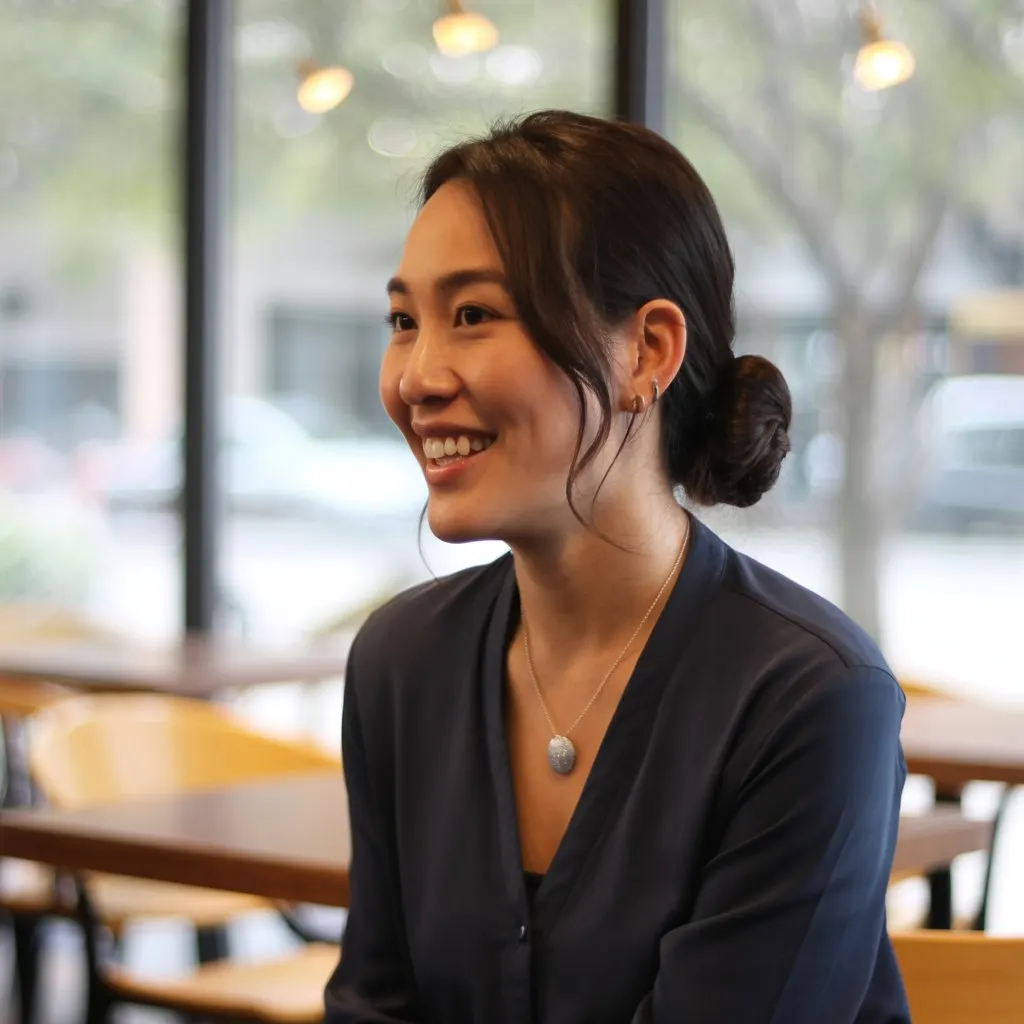I’ll never forget the knot that formed in my stomach every time my phone rang with my mom’s ringtone. The woman who raised me, who I loved deeply—her calls sent my heart racing and my palms sweating. That realization hit me like a freight train one Tuesday afternoon: my own family was triggering my anxiety.
If you’re nodding along right now, feeling that familiar guilt creeping in, let me say this upfront—you’re not alone, and you’re not a bad person. Family and anxiety have this complicated dance that nobody really prepares us for. We’re taught to honor our parents, love our siblings, and cherish our relatives. But what happens when those relationships feel more like walking through a minefield than coming home?
Here’s what I’ve learned through my own journey and years of walking alongside others through this struggle: acknowledging that family can trigger anxiety doesn’t make you unfaithful or ungrateful. It makes you honest. And honesty, my friend, is where healing begins.
The Hidden Weight of Family Expectations
You know what nobody tells you about family anxiety? It’s often wrapped up in layers of “shoulds” that we’ve carried since childhood. Should call more often. Should be more patient. Should have it all together by now. Should, should, should—until the weight of those expectations makes it hard to breathe.
I spent years trying to be the daughter, sister, and aunt everyone needed me to be, all while my anxiety was screaming for me to set boundaries. The tension was exhausting. On one hand, Scripture tells us to honor our father and mother (Exodus 20:12). On the other hand, my body was physically reacting to family interactions with panic attacks and sleepless nights.
What I’ve come to understand is that honoring our family doesn’t mean sacrificing our mental health on the altar of their expectations. Jesus himself set boundaries with his own family when he needed to focus on his calling (Mark 3:31-35). He loved them deeply, but he also recognized when he needed space to do what God called him to do.
The guilt, though—that’s the part that keeps us stuck. We feel guilty for needing distance. Guilty for not answering every call. Guilty for feeling anxious around the people who should feel like home. That guilt becomes its own form of anxiety, creating this vicious cycle that’s hard to escape.
Understanding Why Family Triggers Anxiety
Let me share something that changed my perspective entirely. Family anxiety isn’t just about difficult personalities or past hurts—though those absolutely play a role. It’s about the unique intensity of family relationships and how they intersect with our deepest vulnerabilities.
Think about it this way: your family knows you at your most unguarded. They witnessed your awkward phases, your mistakes, your struggles. That history creates a specific kind of pressure because there’s nowhere to hide. With friends or colleagues, we can curate our image a bit. With family? They remember that time we threw a tantrum at Thanksgiving dinner in 1998.
I’ve found that family-related anxiety often stems from a few common patterns. There’s the anxiety of feeling misunderstood—when your family just doesn’t get who you’ve become. There’s the anxiety of repeated patterns—those same arguments that happen every holiday. And there’s the anxiety of feeling responsible for everyone’s emotions—especially common for those of us who grew up as peacemakers or caretakers.
In my case, I realized I was carrying my mother’s anxiety as if it were my own. Every time she worried about something, I absorbed it, thinking that was my job as a loving daughter. It took my Christian counselor asking a simple question to shift everything: “Where in Scripture does it say you’re responsible for managing your mother’s emotions?”
I couldn’t find it. Because it’s not there.
The Spiritual Dimension Nobody Talks About
Here’s where faith and family anxiety get really complicated. Many of us grew up in churches that emphasized family unity above all else. We heard sermons about respecting parents, keeping the peace, and putting family first. All good things, right? Except when those messages become weapons against our mental health.
I remember sitting in my car after a particularly difficult family gathering, tears streaming down my face, praying desperately for God to fix me. Why couldn’t I just be grateful? Why did being around my family make me feel like I was drowning? Surely something was wrong with my faith, right?
Wrong. What I’ve discovered through years of prayer, therapy, and studying Scripture is that God never intended for family relationships to cost us our peace. In fact, Jesus talked quite a bit about the challenges within families. He warned that following him might create division (Matthew 10:34-36), not because he wanted conflict, but because he understood that growth sometimes requires difficult choices.
Philippians 4:6-7 tells us to be anxious for nothing, to bring everything to God in prayer. But notice what it promises—the peace of God that guards our hearts and minds. Sometimes that peace comes through prayer that leads us to set healthy boundaries. Sometimes it comes through the courage to have difficult conversations. And sometimes, that peace means accepting that we can love our family from a safe emotional distance.
God isn’t asking us to be anxious martyrs in our family relationships. He’s inviting us into a peace that might look different from what our family—or our church—expects.
Practical Steps for Managing Family-Related Anxiety
Now, I know what you’re thinking—this all sounds great in theory, but what do I actually do when Sunday dinner with the in-laws is tomorrow? Let me share what’s worked for me and countless others I’ve walked alongside.
First, prepare yourself spiritually and mentally before family interactions. I’ve made it a practice to spend time in prayer before any family gathering, asking God to guard my heart and give me wisdom. I also set a personal intention—maybe it’s “I will respond with grace, not react from anxiety” or “I will speak my truth kindly but firmly.” Having that anchor keeps me grounded when things get tense.
Second, recognize your physical anxiety signals early. My shoulders creep up toward my ears when family stress builds. My friend Sarah notices her jaw clenching. Pay attention to what your body is telling you, because anxiety always shows up physically before we consciously register it. When you notice those signs, take a literal bathroom break. Splash cold water on your wrists, take five deep breaths, and whisper a quick prayer. I’ve spent more time in bathroom stalls regulating my nervous system than I’d like to admit, but it works.
Third—and this is crucial—plan your exit strategy before you arrive. I learned this the hard way after too many gatherings where I felt trapped and my anxiety spiraled. Now I drive separately when possible, or I tell my husband beforehand that we’re leaving by a certain time. Having control over when you can leave transforms the entire experience because you’re no longer trapped.
Fourth, practice the art of the gentle redirect. When conversations veer into territory that triggers your anxiety—whether it’s criticism, gossip, or topics you’ve agreed not to discuss—have a few phrases ready. “That’s not something I want to discuss today.” “I appreciate your concern, but I’ve got that handled.” “Let’s talk about something more positive.” You’d be amazed how a simple redirect, delivered with a smile, can shift the entire dynamic.
Setting Boundaries Without Burning Bridges
This is where the rubber meets the road, and honestly, it’s the hardest part. Setting boundaries with family feels like betrayal when you’ve spent your whole life being the flexible one, the understanding one, the one who keeps the peace at any cost.
I want you to hear this clearly: boundaries are not punishment. They’re protection. They’re not about controlling your family’s behavior—they’re about managing your own well-being. And here’s the spiritual truth that set me free: Jesus modeled boundaries throughout his ministry. He withdrew to pray when he needed solitude. He spoke truth even when it was uncomfortable. He prioritized his mission over people-pleasing.
Start small if you need to. Maybe it’s not answering your phone every single time a family member calls. Maybe it’s limiting holiday visits to a few hours instead of all day. Maybe it’s simply saying “I need to think about that” instead of immediately agreeing to every request.
When I finally told my mom that I needed to limit our phone calls to once a week instead of daily, my hands were literally shaking. I prayed before that conversation, asking God for words that were both honest and loving. Her initial reaction wasn’t great—there were tears and accusations that I didn’t care about her. But I held firm, explaining that this boundary actually allowed me to be more present during our conversations because I wasn’t constantly overwhelmed.
It took time, but our relationship is healthier now. She still doesn’t fully understand my anxiety, but she respects my needs. And I’ve learned that her hurt feelings about my boundaries aren’t my responsibility to fix. That might sound harsh, but it’s actually liberating—for both of us.
When Family Doesn’t Understand Your Anxiety
This part hits especially hard because there’s a longing we all have to be truly seen and understood by our families. When they minimize your anxiety, dismiss it as weakness, or worse—tell you to “just pray more”—it cuts deeply.
I’ve sat with my coffee mug gripped in both hands, trying to explain to my dad why I can’t just “snap out of it,” watching his confusion and frustration. He’s a practical man who believes most problems can be solved with hard work and positive thinking. My invisible struggle with anxiety doesn’t compute in his worldview.
Here’s what I’ve had to accept: not everyone will understand, and that’s okay. Their understanding isn’t required for your healing. Would it be nice? Absolutely. Is it necessary? No. What’s necessary is that you understand your anxiety, that you have people in your life who get it, and that you know God sees your struggle.
Sometimes the most loving thing we can do is release our family members from the burden of having to understand. We can share our experience honestly if they’re open to it, but we don’t need their validation to know that what we’re experiencing is real and worthy of care.
Proverbs 4:23 reminds us to guard our hearts above all else. Sometimes guarding your heart means accepting that certain family members can’t be your safe people for discussing your anxiety. That’s not giving up on them—it’s being wise about where you seek support.
Finding Your People When Family Isn’t It
One of the most healing truths I’ve discovered is that God often provides us with spiritual family when our biological family can’t meet certain needs. Jesus even redefined family in Mark 3:35, saying that those who do God’s will are his brothers, sisters, and mothers.
I’ve found my “anxiety family”—people who understand this struggle because they live it too. There’s my friend Rebecca, who texts me before big family events to pray with me. There’s my small group at church, where I can be completely honest about my struggles without fear of judgment. There’s my therapist, who helps me untangle the complicated knots of family dynamics and faith.
These relationships don’t replace my biological family, but they supplement them in crucial ways. They provide the understanding and support that my family simply can’t offer, and there’s no shame in that. It’s actually a beautiful picture of the body of Christ functioning as it should—each person contributing what they can, others filling in the gaps.
If you don’t have this kind of support yet, I encourage you to seek it out. Look for anxiety support groups at local churches. Join online communities of Christians dealing with mental health challenges. Consider working with a Christian counselor who understands both the psychological and spiritual dimensions of family anxiety.
Moving Forward with Grace and Grit
Here’s what I want you to know as we wrap up this conversation: managing family anxiety is an ongoing process, not a one-time fix. There will be good seasons and hard seasons. There will be family gatherings where you feel proud of how you handled yourself, and others where you retreat to your car feeling defeated. That’s part of being human.
What matters is that you keep showing up for yourself with the same compassion God shows you. That you keep setting boundaries even when it’s uncomfortable. That you keep seeking peace even when others don’t understand why you need it.
I still love my family deeply. I still show up for holidays and important events. But I show up now as a healthier version of myself—one who knows her limits, respects her needs, and doesn’t apologize for protecting her peace. That hasn’t always been easy, and some family members still don’t get it. But my anxiety has decreased dramatically, and my genuine capacity to be present with family has actually increased.
God doesn’t want you to live in a constant state of anxious dread about family interactions. He wants you to experience the peace that passes understanding (Philippians 4:7), even in complicated relationships. Sometimes that peace comes through miraculous healing of family dynamics. Sometimes it comes through your own growth and boundary-setting. Both are valid, both are okay.
Start where you are. Maybe today that means praying for wisdom about one specific family relationship. Maybe it means finally making that appointment with a counselor. Maybe it means giving yourself permission to skip one family event without spiraling into guilt. Whatever that first step is for you, take it. You deserve to live with less anxiety, even when it comes to the people who share your DNA.
And remember—you’re not choosing between loving your family and caring for your mental health. You’re learning to do both, in a way that honors God, respects yourself, and maybe, just maybe, creates space for healthier relationships down the road.
Your anxiety about family doesn’t make you broken. It makes you human. And there’s grace for that.




